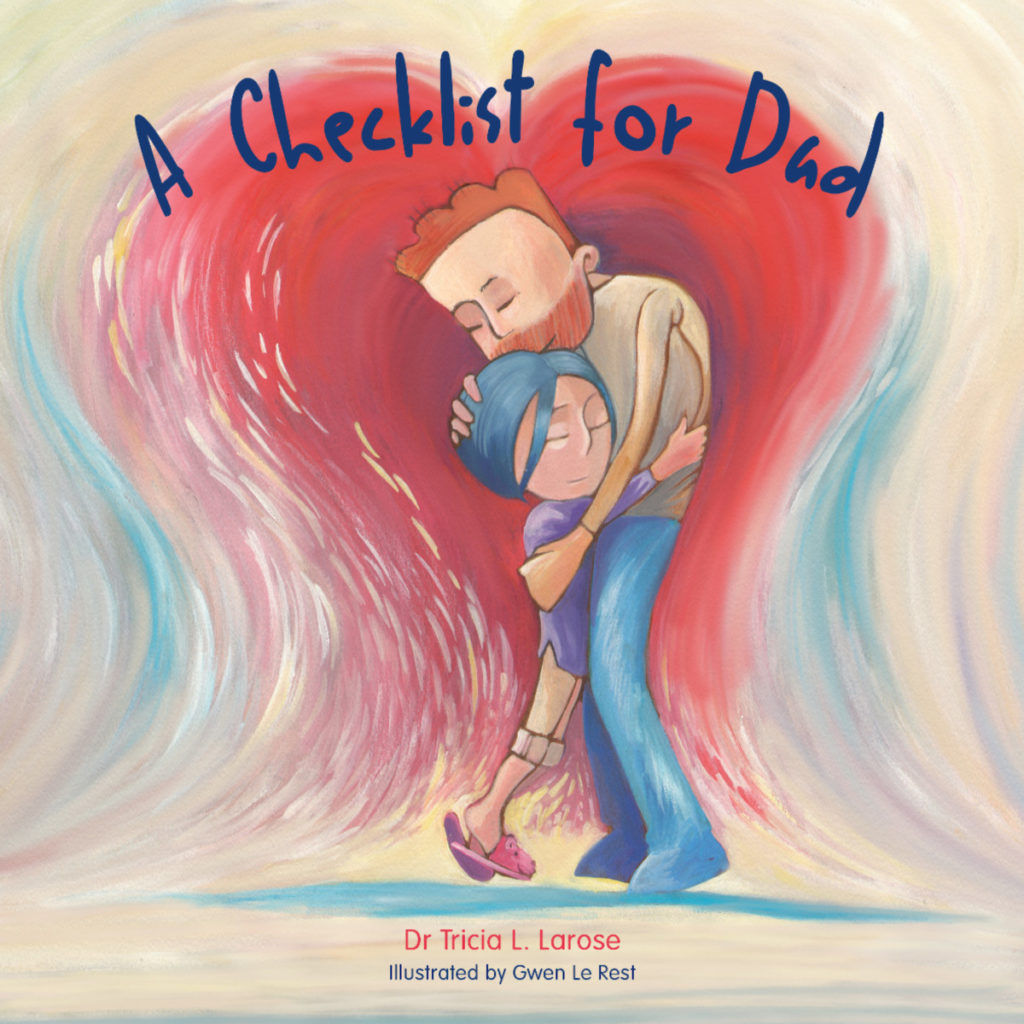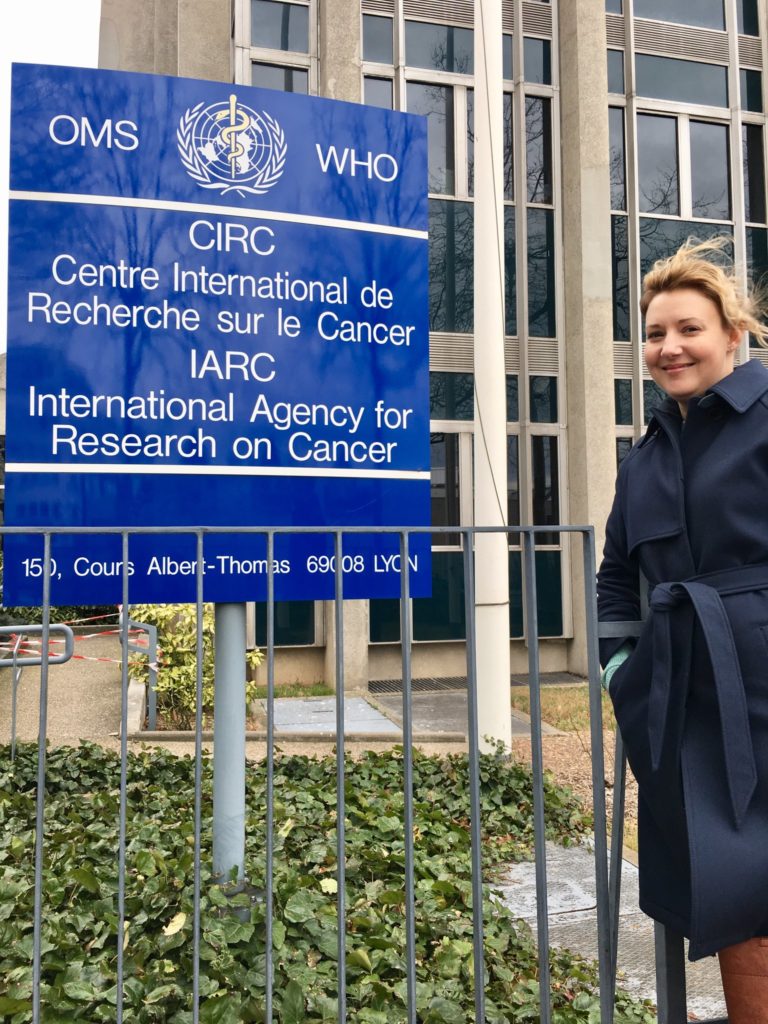Dr. Tricia Larose is a cancer researcher, a former NTNU employee and now also an author of a children´s book about cancer – “A checklist for Dad”.

Normalising cancer
Why did you decide to write a book about this topic?
– I was driven to write this book, both scientifically and morally. The first version of the book was written in Norwegian with the title “Kreft er ikke smittsomt”. Science communication has always been important to me, and cancer is a complex topic that is not necessarily easy to talk about with children. Publishing this book with IARC/WHO during my time at NTNU fulfills the mission/vision of both organisations: “Cancer research for cancer prevention” and “Knowledge for a better world”.
Why do you think it is important that children of cancer patient have this book written for them?
– I was born and raised in a mining town in Northern Ontario in Canada. The community I am from is riddled with cancer, not only from exposure to toxic mining practices, but also due to lifestyle. Cancer was, and continues to be, very common in my home town. Still, information for children and young people are lacking and it can be very difficult of parents, family members, teachers, etc. to speak with children about cancer.
– In addition to the story, I have included a Q&A section that is scientifically sound, but also gently written. Hopefully the story, including the Q&A will be helpful, not only for children to better understand cancer as a disease, but also to help children normalise any feelings of fear, anxiety, uncertainty that they may have when someone they love has been diagnosed with cancer and is undergoing treatment.
You have donated all the proceeds to IARC/WHO, why them?
– As the specialized cancer agency of the World Health Organization, IARC is considered the world authority on cancer. Children and youth now have unprecedented access to information online. As adults we understand how challenging it is to decipher that information – not only because of the volume of information that is available, but also because it can be difficult to know which sources to trust. I strongly felt that publishing this book with the IARC/WHO logo would be of major service to the public. A source of information that is scientifically peer-reviewed for truth and validity. A source of information that children, youth, parents, family, teachers, librarians could trust.
As a scientist in academia, both my salary and my research is supported by public funds. This means that all of my research belongs to the public. As such, I felt very strongly that this book should be for the benefit of all, not only for my personal benefit.
A conversation-starter
What are your hopes for this book?
– Cancer is a scary word and in many ways, a black box. Even as adults, we have difficulty understanding cancer as a disease, cancer treatment, possible outcomes, and the role of genetics vs. the role of lifestyle and environment. During my PhD period I lost 3 close family members to cancer. You can see their names listed as a dedication in my dissertation. It is difficult for adults to face cancer and the possibly of death, I can only imagine how difficult it would be for a child to face these same facts.
My sincere hope is that families can use this book to start a conversation with children and navigate the very difficult topic of cancer.
– Although the book is fiction, it is also scientifically true. In fact, senior scientists from IARC/WHO peer-reviewed the book for scientific accuracy. We´ve even included a Q&A section at the back to touch on important issues that were not covered in the story. With 100% of proceeds from the sale of the book going to cancer education and training, I also hope that this grassroots effort will have a positive impact on the education and training of cancer researchers world-wide.
The process

Tricia Larose at the International Agency for Research on Cancer (IARC).
– As a scientist publishing scientific articles, book chapters, etc. we don´t often see the process behind the publication. We simply send it off for peer review and once accepted, we expect to see it published all neat and tidy on the page or in our download. There´s a lot of steps in between that I took for granted, but after A Checklist for Dad, I have a better understanding of the overall publishing process.
What was the writing process like for you?
Unlike scientific writing, my writing process for this book was emotionally driven. It was challenging to find a balance between writing a palatable story, and infusing facts around cancer genetics, diagnosis and treatment.
The process of working with an Editor who specialises in children´s book and inclusivity was very helpful. This is my first children´s book so I needed some help. Although the story line remained largely unchanged, the nuance of language and timing was much improved with the help of my Editor
We understand that this is IARC/WHO´s first children´s book?
Yes. Once I decided to offer the book to IARC/WHO, which meant signing over my copyright and donating 100% of the proceeds from the sale of the book to the Education and Training Group at IARC/WHO, I had to be willing to adapt the text and story line so that it best represented the IARC/WHO mission and mandate.
Can you tell us a bit about the illustrations in the book?
– The book is wonderfully illustrated by French artist, Gwen Le Rest. It was amazing to see the story come to life on the page. It´s difficult to choose a favourite illustration, because there are so many that evoke strong emotions for various reasons. For example, the illustration when Ella gets a stomach ache and thinks she might have cancer just like her Dad
This was my first time working with an illustrator and Gwen was fantastic.
Will we see more of you as a literary author?
– A Checklist for Dad is my first published children´s book, and I hope to have it translated into other languages, including Norwegian. I also have more children´s books on the way. Stay tuned!
About the author
During her postdoctoral training (and writing of this book) Tricia Larose held a 2-year mandatory overseas research stay at the International Agency for Research on Cancer – the specialized cancer agency of the World Health Organization in Lyon, France. The last year of her postdoc was hosted by the K.G. Jebsen Center for Genetic Epidemiology at the Faculty of Medicine and Health Sciences, NTNU. You can follow Tricia on Twitter @TricLarose
The book is now available on Amazon, and 100% of the proceeds from the sale of this book go to the Education and Training Group at IARC/WHO.
Read more about her book project on Norwegian SciTech News.
